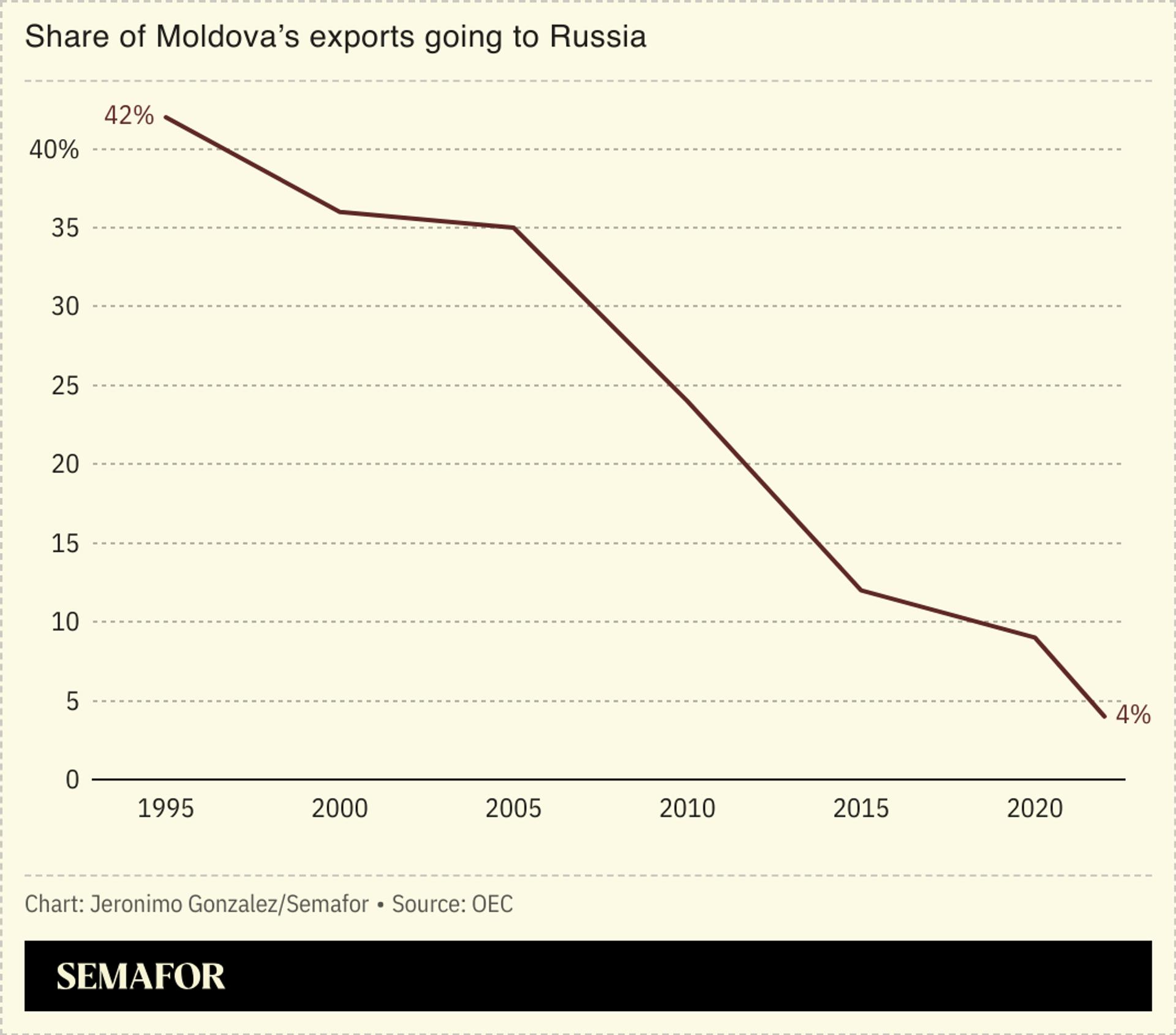The News
Moldova’s pro-Western President Maia Sandu won a second term in office despite alleged “massive interference” from Russia.
Sandu won 55% of the vote in a runoff with her opponent, who favored closer ties to Russia, and promised to govern for all Moldovans.
She had earlier warned of “thieves” trying to steal the election: Her security chief said Moscow had organized buses and flights to bring voters to polling stations, while bomb scares had disrupted voting both in Moldova and at overseas voting centers in the UK and Germany.
Moldova was a Soviet republic for 51 years, governed from Moscow, and has a significant Russian-speaking population. A week earlier, Russia was accused of meddling in Georgia’s election too: The Kremlin denied both allegations.

SIGNALS
Like Georgia, Moldova has become a battleground in the tug-of-war between Russia and the West
Moldova is internally divided between ethnic and linguistic groups, as well as urban-rural and rich-poor, meaning there’s little common ground “on what Moldovan national identity stands for” — which makes it a key battleground in the ongoing tug-of-war between Russia and the West, an international security expert argued in The Conversation. In Georgia, Moldova, and Ukraine, Russia is using different tactics with the same overall objective: Regaining control over countries that used to be “obedient satellites,” a political scientist added. Moldova may be more resilient than Georgia, where much of the burden for protecting the integrity of elections fell on civil society, Radio Free Europe/Radio Liberty reported.
Russia is playing the long game in Moldova
Moldova narrowly voted to include EU integration in its constitution two weeks ago, but the situation remains fragile, and Kremlin interference campaigns adept at exploiting frustration with the government could still derail the country’s European path, a Moldovan journalist argued in The Guardian. Russia knows its troops won’t reach Odesa any time soon, so it is “playing for time” by trying to keep Moldova in geopolitical limbo, an expert at the Carnegie Russia Eurasia Center argued.

